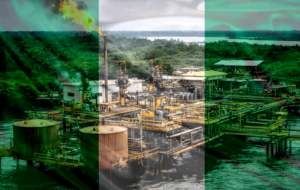Nigeria’s Top General Vows to Expose Terrorism Sponsors Amid Rising Security Threats
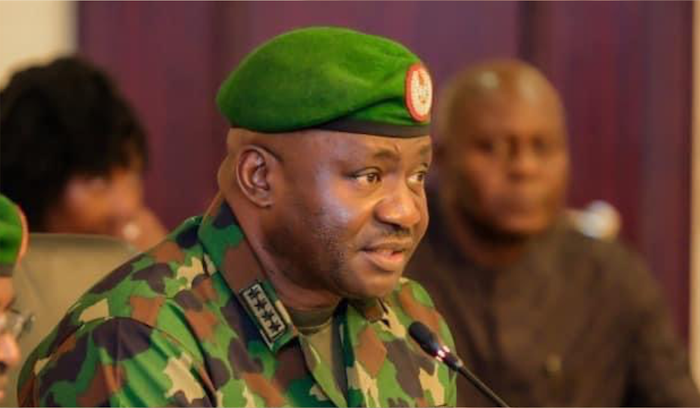
In a country long battered by violent extremism, a new promise from Nigeria’s top military officer has reignited public debate about the hidden hands fueling terror in Nigeria. General Christopher Musa, Nigeria’s Chief of Defence Staff (CDS), has pledged to unmask those sponsoring terrorism in Africa’s most populous nation. A bold assertion that speaks both to the progress and the persistent struggles of Nigeria’s war against insurgency.
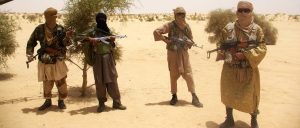
Speaking recently in Abuja, General Musa voiced growing concern over the expanding and often sophisticated methods terrorist networks employ to sustain their operations. “The fight is not just about guns and bombs; it’s about money, networks and sponsors who operate in the shadows,” he said. His words strike at the heart of Nigeria’s decade-long battle with Boko Haram, the Islamic State West Africa Province (ISWAP) and splinter groups like Ansaru.
![]()
Following the terrorism sponsors’ money trail: security analysts and government officials say terrorist groups in Nigeria increasingly rely on unconventional financing methods. Beyond direct cash transfers, investigators have traced funds through gold smuggling, trade in precious stones, and informal money-transfer systems. Some of these funds are believed to come from sympathizers abroad, while others are linked to local collaborators exploiting porous borders and weak financial oversight.
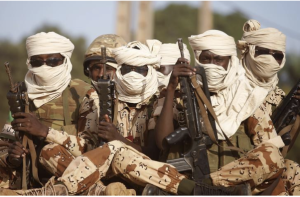
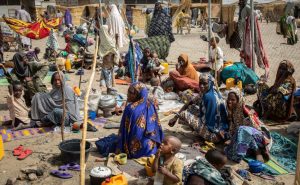
“The use of gold in particular has become a channel for laundering money to sustain terror groups,” General Musa noted. His comments echo findings from previous intelligence reports that suggest militants are turning natural resources into lifelines for their campaigns of violence. So, for Africa’s largest economy – Nigeria, the fight to cut off these funds is as important as battlefield victories. Without addressing financing, military gains often prove temporary.
The Nigerian military has recently claimed significant breakthroughs. In a notable development, high-ranking members of Ansaru, a faction notorious for kidnapping and attacks on civilians, were apprehended. Authorities hype these arrests as evidence that the government’s intelligence-driven strategy is paying off.
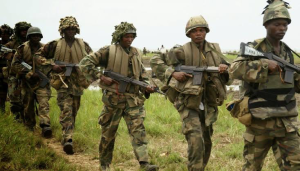
Yet, such successes are often tempered by painful reminders of the threat’s persistence. Just weeks ago, worshippers in a rural community were attacked during prayers, underscoring the vulnerability of ordinary Nigerians. To survivors, the tragedy was not just another statistic in Nigeria’s conflict, it was the loss of family, neighbors and a sense of safety.
Aisha Ibrahim, a humanitarian worker in Borno State said “The attacks may be fewer compared to the peak years, but each incident devastates entire communities”.
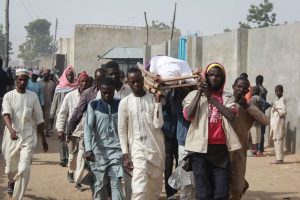
Beyond the battlefield, the crisis has exacted a staggering human toll. More than 2 million people remain displaced across the country’s northeast, according to the United Nations. Camps for internally displaced persons (IDPs) are stretched thin, while host communities shoulder the strain of absorbing thousands of traumatized families.
Children, many of whom have known nothing but conflict, face disrupted education and heightened risks of recruitment into extremist groups. Meanwhile, women and girls often bear the brunt of violence, from abductions to gender-based assaults.
“The social fabric is tearing” explained Dr. Chidi Anselm, a sociologist at the University of Abuja. “When people live for years in fear, with homes destroyed and livelihoods lost, the scars remain long after the guns go silent.”
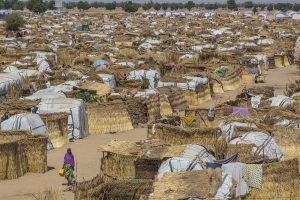
General Musa’s vow to expose terrorism’s sponsors, resonates at a politically sensitive moment. Nigerians remain skeptical of government pledges after years of promises that the insurgency would soon be “technically defeated”. In consideration, the General’s statement raises hope, but also with nonverbal questionable suspicion, indicating if powerful names in this criminal web will be revealed, or will the investigations stall under political pressure?
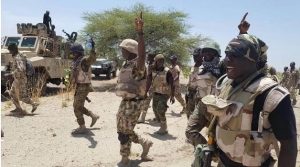
Civil society groups argue that tackling terror financing must go hand in hand with addressing governance failures, poverty and social exclusion. These are conditions that extremists exploit to recruit followers. “It is not enough to arrest foot soldiers while ignoring systemic corruption and political complicity”, a warning from the advocacy group called – Enough Is Enough Nigeria.
On the streets, citizens echo frustrating questions over these claims. For instance Ahmed Lawal, a Lagos taxi driver asked “We hear about sponsors all the time. But who are they? When will the truth come out? Until then, the killings continue, etc.”
General Musa’s pledge may mark a turning point, but analysts caution that exposing terrorism’s backbones will require more than strong rhetoric. It will demand institutional courage, regional cooperation, unhampered federal government backing and international support.
Nigeria’s security future hangs on whether its leaders can balance the immediate need for military action with long-term strategies that address economic inequality, strengthen financial oversight and rebuild the trust of ordinary citizens.
As the General himself admitted, “We cannot win this war by weapons alone. We must cut off the resources that feed terrorism and protect the people who suffer most from its violence.”
Until then, the fight for Nigeria’s peace, security of lives and properties remains an unfinished battle-campaign. It is a struggle that is not only on the battlefield, but in boardrooms, marketplaces, leadership enclaves, religious communities, collegiate family socioculture and political corridors where the fate of millions is quietly decided.


